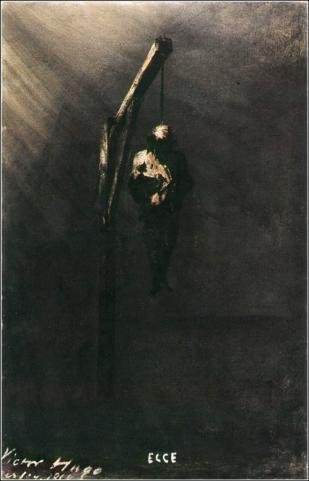The trial of Radovan Karadzic towards which I have been working the past 4 months has finally started. The sense of a massive undertaking was palpable the moment that Judge Kwon asked Prosecutor Alan Tieger to start his opening statement. I have worked on many different elements of this case. Some things are shocking and confronting, for certain, but these occur in small, relatively out of context tasks. Perhaps I find myself working on organising evidence for trial and come across something incredibly graphic. It's easy to compartmentalise and disassociate yourself from what you're seeing. When Mr. Tieger started to summarise clearly and concisely the many different elements and facts of the case that had once been a jumbled mess of information in my head it suddenly became so clear. It's almost like I had the knowledge of the case by not the understanding to put the many pieces together. He told the story of Radovan Karadzic as I knew it but had never heard it. Parts of the story seemed so familiar but I had never put them into context. Yes, Sarajevo was shelled and sniped for 44 months, Srebrenica was taken over and thousands were executed, hundreds of thousands of people were displaced and thousands killed during the process. Karadzic stood astride all of these atrocities as the Supreme Commander of the Bosnian Serb forces.
Was this destruction and death just a product of war? No, it was the purpose of the war.
"[He] harnessed the forces of nationalism, hatred and fear to implement his vision of an ethnically separated Bosnia."It was an amazing opening statement, and it's not over yet (there is still one more day to go). But this isn't what really opened my eyes. This made the facts of the case more clear. Something else made this new clarity that much more real. I suppose months of working on esoteric elements of trial preparation can very quickly skew your perspective of exactly what you are working towards. Yesterday things were very clearly brought into focus.
It's not so much the fact that the building was surrounded by media. It's not the fact that it appears on every major news syndicate. All of these things are relatively straight forward and to be expected. This is a massive trial that spans over years of violent history in Europe, specifically the Balkans. No, it's the presence of the victims.
The ICTY is unique international court in the sense that it is completely divorced from its context. The crimes were committed in the battle torn Balkans, yet the trial takes place in the placid city of the Hague. Compare this to the ICTR or the SCSL, both which exist, for the most part, in the places where these crimes occured. The purpose behind this are clear. Where the crimes occured is also where you will find the people who were affected. It's important for victims to feel that they are represented, especially if any kind of post war reconciliation is to be achieved. If you leave work from the ICTR in Arusha, Tanzania you are surrounded by people who fled Rwanda during the genocide. Everyday you would be mingling in with communities that have been destroyed by the civil war.
The viewing gallery was completely filled up by media and diplomats from various countries. This meant that every employee watched the beginning of the trial streaming live on their computers. Some people even brought their friends into the office to watch it as well. Everyone, no matter what case they were on, was watching Courtroom 1 and the opening statement against Radovan Karadzic. But the difference that I felt most keenly was that of the Srebrenica wives and daughters. They filed through the corridor and in to the conference room just outside my office. There, just like the rest of us, they watched the trial start. To me it was a moment where all the facts came together in a neat package, for victims it was so much more than that, it was a truth that has tortured them for 14 years. And there they all sat, more than 50, all seated in one large room watching the proceedings that had such an incredible personal significance to them. Wives and daughters who had, in some cases, lost most of the men in their family and had been forced to raise the decimated families in an unforgiving warzone. Solemn respect doesn't even begin to qualify the feelings that come from encountering people who have suffered through so much. The few times I would pass them in the hallway was strange at first. They knew everything about this conflict from intimate personal experience but so little about what goes on at the tribunal. To me I know nothing about what these people really went though during the war, but I know exactly how this tribunal operates from day to day. As some of them filed passed our office on their way out of the building, after watching the opening statement, they would peek their heads into the office and with a gentle smile and say thankyou.
Everyone at this tribunal is here to do justice for the people of the former Yugoslavia, but sometimes you need to be reminded, especially when Bosnia feels so far away from the Hague. Sometimes you need to step back from the specific and finicky legal, administrative and procedural issues and realise that this story is a tragically real one for a huge amount of people. Sometimes certain things need to force your perspective towards the most important reason behind these trials, the victims.
Quote of the day:
"Power is the relation of a given person to other persons, in which the more this person expresses opinions, theories and justifications of the collective action the less is his participation in that action."
- War & Peace by Leo Tolstoy

